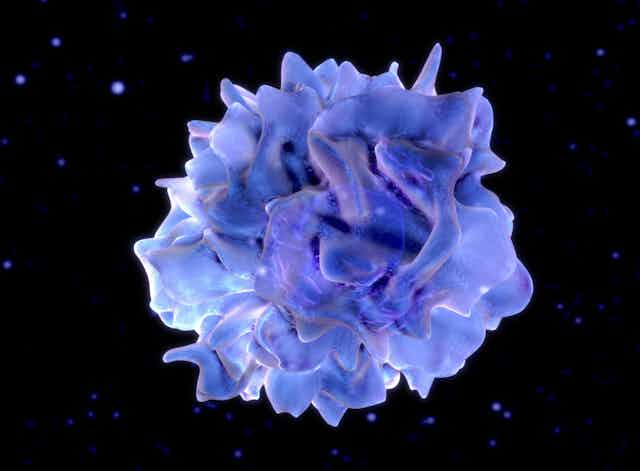As the NHL hockey season comes to an end, there is disappointment yet again that there are no Canadian teams competing in the league finals. The last Canadian Stanley Cup victory was in 1993 for the Montréal Canadiens. There is small comfort in the fact that the majority of hockey players in the playoffs today are either from or have been trained in Canada.
This provides a parallel for a similar but even more dire situation in Canada’s record in the elite competitive environment of the Nobel Prize in physiology or medicine. Since the award’s inception in 1895, 216 Nobel laureates in physiology or medicine have been named; only one Canadian discovery has ever been recognized.
Frederick Banting is our only Canadian Nobel laureate in this category for his discovery of insulin while at the University of Toronto. His heroic effort has been best documented by Michael Bliss as “one of the most important medical discoveries of the modern age.”
The Montréal Canadiens alone have won the Stanley Cup 24 times. The dismal record in Nobel prizes in physiology or medicine for Canada has some solace from the seven Nobel Prize laureates in physiology or medicine who trained in Canada and then left to make their Nobel discovery in the United States or the United Kingdom.
John O’Keefe
Recognized for a Nobel Prize in physiology or medicine with May-Britt Moser and Edvard I. Moser in 2014, John O’Keefe trained at McGill University in the same department of psychology as Brenda Milner, who discovered the importance of the hippocampus of the brain for memory in humans. Milner and O'Keefe shared the Kavli Prize in 2014. At University College London, O’Keefe discovered the cells in the hippocampus of the brain that enable us to follow a route, where an object is located and where an event occurred. O'Keefe received his Nobel Prize for this work. Meanwhile, Canada is hopeful that centenarian Brenda Milner can be recognized for a well-deserved Nobel Prize in physiology or medicine in the future.
Read more: A memory pill? Cognitive neuroscience's contributions to the study of memory

Ralph M. Steinman
Born in Montréal and trained at McGill University and then Harvard University, Ralph Steinman was recognized with the Nobel Prize while at the Rockefeller University in New York City (Rockefeller University is currently associated with 25 Nobel Prizes). With Bruce A. Beutler and Jules A. Hoffmann, Steinman received a Nobel Prize in physiology or medicine in 2011 for the discovery of the dendritic cell that is key to the immune system.
Jack W. Szostak
After training at McGill and Cornell universities, Jack Szostak was recruited to Harvard University in Cambridge, Mass. There, in 2009, he was awarded the Nobel Prize in physiology or medicine with Elizabeth H. Blackburn and Carol W. Greider for the discovery of how chromosomes are protected by a cap at each end to prevent chromosome breakdown as cells divide.
David H. Hubel
In 1981, David Hubel, who was born in Windsor, Ont., was awarded the Nobel Prize in physiology or medicine while at Harvard University for his discovery of how the brain interprets the inputs from our eyes. Hubel’s second year in medical school at McGill was transformative when he worked with Herbert Jasper of the Montreal Neurological Institute. He continued this interest at the Walter Reed Army Institute of Research in Silver Spring, Md., where he developed a method to record single cells in the brain. Hubel successfully made an electrode to record from the nervous system of lab animals and was recognized with Roger W. Sperry and Torsten N. Wiesel for the Nobel Prize.
Roger Guillemin and Andrew V. Schally
Hans Selye’s Stress theory, developed while he was at McGill, posited that the brain controlled hormonal responses in animals and humans. The hypothesis was proven by Roger Guillemin and Andrew Schally. After Selye’s discovery, he went to the Université de Montréal where he was joined by Roger Guillemin. Together, they studied how the pituitary gland was affected by stress.
Meanwhile at McGill, Andrew Schally discovered that the hypothalamus of the brain produced hormones that controlled the production of pituitary hormones. Both Guillemin (at the Salk Institute for Biological Studies in La Jolla, Calif.) and Schally (at Tulane University in New Orleans, La.) moved to the U.S. to continue their research and in 1977 shared the Nobel Prize in physiology or medicine with Rosalyn Yalow.
Charles B. Huggins
Born in Halifax, Charles Huggins graduated from Nova Scotia’s Acadia University in 1920, and completed medical training at Harvard. In 1966, while at the University of Chicago, Huggins was awarded with Peyton Rous the Nobel Prize in physiology or medicine for his discovery of hormonal treatment for prostate cancer.
Montréal exceptionality
The coincidence of Montréal universities training six of the seven Nobel Prize laureates may be reflective of the historical achievements of McGill University and that of the Montréal Canadiens, which won the Stanley Cup 24 times.
For a Nobel Prize in physiology or medicine, talent is key, but talent selection in Canada may be lacking. The same is true for a Stanley Cup. The best in talent recognition in hockey may have been Sam Pollock. He was responsible for talent selection for the Montréal Canadiens when they won nine Stanley Cup championships and the Team Canada general manager for the inaugural Canada Cup in 1976.
Recently, the federal government through its funding agency (CIHR) has targeted for elimination the research grants for our elite life scientists. Coupled with Ontario’s sudden termination of funding for the Ontario Institute for Regenerative Medicine, the bleak message from Ottawa and Queen’s Park is unmistakable and inconsistent with a commitment to exceptionality.
Canadians have not given up on winning another Stanley Cup — neither should we on another Nobel Prize in physiology or medicine. There are certainly many who deserve the recognition.
John Bergeron gratefully acknowledges Kathleen Dickson as co-author.

